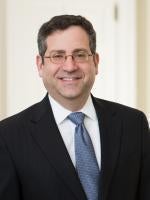Later this term, in Universal Health Services, Inc. v. United States ex rel. Escobar, No. 15-7 (S.Ct.), the Supreme Court will consider the validity, and possibly the contours, of the “implied certification” theory of False Claims Act liability. The decision, expected by June, will likely have far-reaching consequences for health care providers, defense contractors, and others who submit claims to the government.
The False Claims Act (FCA) imposes liability on one who presents or causes to be presented “a false or fraudulent claim for payment or approval.” Many courts have held that a claim that itself contains no false representations may nonetheless be “false or fraudulent” on the theory that, just by submitting the claim, the claimant implicitly represents that he or she has complied with all applicable statutory, regulatory, and contractual requirements that are conditions of payment.1 Consequently, if the claimant has not complied with all such requirements, then it has violated the FCA just by submitting the claim. This is referred to as the “implied certification” theory of FCA liability. Essentially, this theory permits liability even when a claim does not contain an actual misstatement.
Courts that have adopted the implied certification theory of liability are divided as to whether the implied representation of compliance must concern a statute or regulation that recites that it is a precondition of payment. For example, in Mikes v. Straus, 274 F.3d 687, 700 (2d Cir. 2001), the Second Circuit recognized that the implied certification theory could be read too expansively and out of context, and therefore explained that “this theory only applies when the underlying statute or regulation upon which the plaintiff relies expressly states the provider must comply in order to be paid.” On the other hand, in United States ex rel. Hutcheson v. Blackstone Med., Inc., 647 F.3d 377, 387 (1st Cir. 2011), the First Circuit rejected the argument that legal preconditions of payment must be expressly designated as such in order to trigger the implied certification theory.
The Supreme Court granted certiorari in Escobar to consider the validity of the implied certification theory. In Escobar, Relators brought a qui tam action against Universal Health Services, Inc. (“Petitioner”) relating to mental health services that their daughter received at a mental health clinic owned and operated by Petitioner’s indirect subsidiary. While receiving treatment at the clinic, the daughter suffered two seizures and died. Following her death, Relators filed a qui tam complaint alleging that Petitioner violated the FCA by seeking reimbursement for services even though the clinic was allegedly out of compliance with Massachusetts Medicaid regulations requiring supervision of certain clinic staff members and requiring the employment of a board-certified psychiatrist and licensed psychologist. Relators alleged that the clinic impliedly certified compliance with these regulations by submitting claims for reimbursement.
Although the district court acknowledged that, under First Circuit precedent, a FCA claim could proceed on the theory of implied certification, the district court dismissed the complaint because Relators failed to identify any regulatory precondition to reimbursement that Petitioner had violated. The First Circuit reversed, holding that Relators’ complaint adequately alleged the clinic’s noncompliance with regulations that it interpreted as preconditions to payment. According to the First Circuit, preconditions to payment “which may be found in sources such as statutes, regulations, and contracts, need not be ‘expressly designated.’”
The Supreme Court granted certiorari as to two questions:
(1) “Whether the ‘implied certification’ theory of legal falsity under the False Claims Act. . . is viable”; and
(2) “If the ‘implied certification’ theory is viable, whether a government contractor’s reimbursement claim can be legally false under that theory if the provider failed to comply with a statute, regulation, or contractual provision that does not state that it is a condition of payment; or whether liability for a legally false reimbursement claim requires that the statute, regulation, or contractual provision expressly state that it is a condition of payment.”
In its opening brief in the Supreme Court, Petitioner argued that the implied certification theory “finds no purchase in the text or history of the FCA and is unsupported by considerations of statutory purpose.” Brief of Petitioner Universal Health Services, Inc., Universal Health Services, Inc. v. United States ex rel. Escobar, No. 15-7 (S.Ct. Jan. 19, 2016) at 28-29. Petitioner first examined the plain language of the statute and the meaning of the terms “false” and “fraudulent,” concluding that “[t]he essence of ‘falsity’ is whether a statement made is incorrect, not whether a statement that was not made would have been incorrect,” id. at 30, and that when an allegation of fraud is based on non-disclosure, there can be no fraud absent a duty to speak, id. at 31. Next, Petitioner examined the FCA’s legislative history and policy reasons supporting rejection of the implied certification theory. Petitioner further explained that the implied certification theory “has the effect of putting words—false ones, at that—into [a] defendant’s mouth, and then penalizing the defendant for those alleged falsities.” Id. at 39-40.
In the alternative, Petitioner argued that if the Court recognizes the implied-certification theory, “its application must be limited to situations in which a defendant requests payment in violation of an expressly designated precondition payment.” Id. at 41. Without such a restriction, there would be no way to determine what legal requirements could be the basis for imposing FCA punitive sanctions.
The relators and the United States filed briefs arguing in favor of the implied certification theory and arguing that the relators’ complaint stated a claim for relief under the FCA.
The Court’s decision in Escobar will have great significance for companies that do business with the government. Currently, health care entities and other companies operating in highly regulated fields do not know when they will be deemed to have “impliedly” certified compliance with a regulation enforceable under the False Claims Act. The Court’s opinion may bring clarity on this important question.
The Supreme Court will hold oral argument in Escobar on April 19, 2016.
1 See, e.g., United States ex rel. Hutcheson v. Blackstone Med., Inc., 647 F.3d 377, 387 (1st Cir. 2011) (applying implied certification theory of FCA liability and stating that preconditions of payment do not need to be expressly designated as such to give rise to false or fraudulent claim under this theory of liability); Mikes v. Straus, 274 F.3d 687, 700 (2d Cir. 2001) (holding that implied false certification theory is appropriately applied only when the underlying statute or regulation upon which the plaintiff relies expressly states the provider must comply in order to be paid); United States ex rel. Wilkins v. United Health Grp., Inc., 659 F.3d 295, 307 (3d Cir. 2011) (adopting implied certification theory of liability, but noting that this “theory of liability should not be applied expansively, particularly when advanced on the basis of FCA allegations arising from the Government’s payment of claims under federally funded health care programs”); United States v. Triple Canopy, 775 F.3d 628, 637 (4th Cir. 2015) (recognizing implied certification theory of liability and “appreciate[ing] that this theory ‘is prone to abuse’ by parties seeking ‘to turn the violation of minor contractual provisions into an FCA action’”); United States ex rel. Augustine v. Century Health Servs., Inc., 289 F.3d 409, 415 (6th Cir. 2002) (adopting implied certification theory of liability); United States ex rel. Ebeid v. Lungwitz, 616 F.3d 993, 995 (9th Cir. 2010) (same); United States ex rel. Conner v. Salina Reg’l Health Ctr., Inc., 543 F.3d 1211, 1217-18 (10th Cir. 2008) (same); United States ex rel. McNutt v. Haleyville Med. Supplies, Inc., 423 F.3d 1256, 1259 (11th Cir. 2005) (same); United States v. Sci. Applications Int’l Corp., 626 F.3d 1257, 1269 (D.C. Cir. 2010) (applying implied certification theory of liability and holding that “express contractual language specifically linking compliance to eligibility for payment” is not required); but see United States v. Sanford-Brown, Ltd., 788 F.3d 696, 711 (7th Cir. 2015) (“Although a number of other circuits have adopted this so-called doctrine of implied false certification . . . we decline to join them.”).





 />i
/>i

